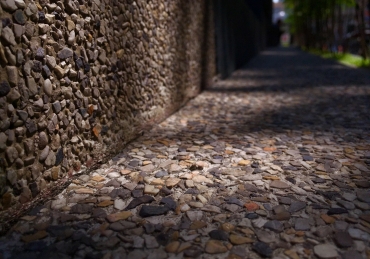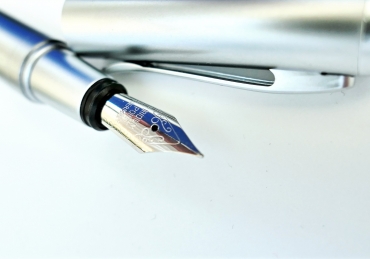Ḥadīth query: Did the sun return for Sayyidunā ʿAlī (may Allah be pleased with him)?
Question
There is a famous story that once ʿAlī (may Allah be pleased with him) was unable to perform his ʿAṣr Ṣalāh and the sun set. Thereafter, the Prophet ﷺ returned the sun enabling him to perform ʿAṣr Ṣalāh. Is this story authentic?
بسم الله الرحمن الرحیم
Answer
This narration has been transmitted by several scholars including Imam Ṭaḥāwī (d. 321/933) in Sharḥ Mushkil al-Āthār (3:92, number 1067). One of the two narrations transmitted by him is as follows:
عن أسماء ابنة عميس قالت: كان رسول الله صلى الله عليه وسلم يوحى إليه ورأسه في حجر علي، فلم يصل العصر حتى غربت الشمس، فقال رسول الله صلى الله عليه وسلم: صليت يا علي؟ قال: لا، فقال رسول الله صلى الله عليه وسلم: اللهم إنه كان في طاعتك وطاعة رسولك فاردد عليه الشمس، قالت أسماء: فرأيتها غربت، ثم رأيتها طلعت بعد ما غربت
Asmāʾ bint ʿUmays narrates: Revelation was coming to the Messenger of Allah ﷺ while his head was in the lap of ʿAlī [may Allah be pleased with him]. So he did not perform ʿAṣr and the sun set. The Messenger of Allah ﷺ said: “Have you prayed O ʿAlī?” He said: “No.” The Messenger of Allah ﷺ said: “O Allah, indeed he was in your obedience and the obedience of your Messenger, so return the sun on him. Asmāʾ said: “So, I saw the sun set; then I saw it rise after it had set.”
Ḥadīth experts since the early era have held competing views regarding the authenticity of this ḥadīth.
(1) Scholars who are inclined to the ḥadīth being established include: Ḥāfiẓ Aḥmad ibn Ṣāliḥ al-Miṣrī (d. 248/862-3), Imam Ṭaḥāwī (d. 321/933), Ḥāfiẓ Muḥammd ibn al-Ḥusayn al-Azdī (d. 374/984-5), Qāḍī Abū al-Qāsim al-Ḥaskānī al-Ḥanafī (d. ca. 480/1087), Qāḍī ʿIyāḍ (d. 544/1149), Ḥāfiẓ Haythamī (d. 807/1405), Ḥāfiz Ibn Ḥajar (d. 852/1149), Ḥāfiẓ Badr al-Dīn al-ʿAynī (d. 855/1451), Ḥāfiẓ Sakhāwī (d. 902/1497), Ḥāfiẓ Suyūṭī (d. 911/1505), ʿAllāmah Qasṭalānī (d. 923/1517), ʿAllāmah Muḥammad ibn Yūsuf al-Shāmī (d. 942/1536), ʿAllāmah Ibn ʿIrāq (d. 963/1555-6), ʿAllāmah Ibn Ḥajar al-Makkī (d. 974/1567), ʿAllāmah Ṭāhir Pattanī (d. 986/1578-9), Mullā ʿAlī al-Qārī (d. 1014/1605), Shaykh Zurqānī (d. 1122/1710-1), ʿAllāmah ʿAjlūnī (d. 1162/1748) and ʿAllāmah Anwar Shāh Kashmīrī (d. 1352/1933).
(2) Scholars who who are inclined to the ḥadīth not being established or authentic include: Imam Muḥammad ibn ʿUbayd al-Ṭanāfasī (d. 205/821), Imam Yaʿlā ibn ʿUbayd al-Ṭanāfasī (d. 209/825), Imam ʿAlī ibn al-Madīnī (d. 234/849), Imam Aḥmad ibn Ḥanbal (d. 241/855), Ḥāfiẓ Ibrāhīm al-Jawzajānī (d. 259/873), Imam Ibn Ḥazm (d. 456/1064), Imam Abū Bakr ibn Zanjawayh (d. after 500/1106), Ḥāfiẓ Ibn ʿAsākir (d. 571/1176), Imam Ibn al-Jawzī (d. 597/1201), Shaykh al-Islām Ibn Taymiyah (d. 728/1328), Ḥāfiẓ Jamāl al-Dīn al-Mizzī (d. 742/1341), Ḥāfiẓ Dhahabī (d. 748/1348), Ḥāfiẓ Ibn al-Qayyim (d. 751/1350) and Ḥāfiẓ Ibn Kathīr (d. 774/1373). This view is also attributed to Imam Abū Ḥanīfah (d. 150/767). Shaykh ʿAbd al-Fattāḥ Abū Guddah (d. 1417/1997) is also inclined towards this. (For references, refer to Kitāb al-Arbaʿīn fī Ḥubb al-Nabī al-Amīn ﷺ).
Our respected teacher Muḥaddith al-ʿAṣr Shaykh al-Ḥadīth Mawlānā Muḥammad Yūnus Jownpūrī (b. 1355/1936) has also expressed reservations regarding the authenticity of this narration; however, he has not indicated his preference for either view.
In conclusion, ḥadīth experts have both views regarding the authenticity of the story and both views are substantiated with evidences.
Allah knows best
Yusuf Shabbir
30 Rajab 1438 / 27 April 2017
Approved by: Mufti Shabbir Ahmad Sahib







Who are the leaders of the youth in Paradise: Abu Sufyan or Hasan and Husayn